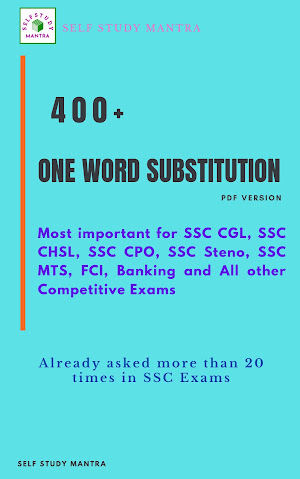Essay on Mahatma Gandhi: In the series of essay writing on famous leaders and personalities here we have written an essay on Mahatma Gandhi. He was the Father of the Nation in India fondly called Bapu. This Essay on Mahatma Gandhi is very helpful for students for their exams and projects.
Mahatma Gandhi Essay in English
Mahatma Gandhi is one of the great patriotic sons of India whose name stands in the forefront. He commanded successful campaigns for India's Independence from British rule with daunting courage and perseverance through this principle of truth and non-violence. He inspired movements for freedom and civil rights not only in India but across the world. Therefore even after his death in the year 1948, he is still considered to be role model for countless people in the world.
Birth and Early Life of Mahatma Gandhi
Mohandas Karamchand Gandhi (Mahatma Gandhi) was born in a middle-class family of Vaishya caste on 2 October 1869 at Porbandar in Kathiawar, Gujarat during British Raj. His father Karamchand Uttamchand Gandhi was Dewan of Porbandar and his mother Putlibai was a religious woman. The Indian classical stories of Shravana and king Harishchandra had a great impact on Gandhiji in his childhood. He completed his initial education in the local school in Rajkot and graduated from Ahmedabad. Later he went to England to study law and returned as a lawyer in 1890. At the age of 13 years, he was married to Kasturbai Makhanji Kapadi (Kasturba) in an arranged marriage custom.
Mahatma Gandhi’s Contribution in Struggle for Freedom
In 1915 Gandhi returned to India after successful Satyagrah movement in South Africa against the unjust treatment and discrimination faced by the oppressed section of the society. He returned to India with only one ambition to serve his people and bring freedom in the country from British rule.
He founded Satyagrah Ashram which is also known as Sabarmati Ashram in 1915. Presently the Sabarmati Ashram is situated near Sabarmati river on the outskirts of Ahmedabad. At Satyagrah Ashram he dedicated himself to the service of the people and preached the vows of truth, ahimsa, celibacy, and non-stealing.
Active Role in Indian Politics for freedom
Gandhi got into active Indian politics when the Rowlatt Act was passed by the British Government in the year 1919 which denied the civil liberties of the Indians. Gandhi Ji opposed this act and started Civil Disobedience Movement against the law. Since then Mahatma Gandhi became the forefront of the freedom struggle and subsequently, in few years he became the undisputed leader of the national movement for freedom.
Against the British rule Mahatma Gandhi launched three mass movements namely Non-Cooperation Movement in 1920, Civil Disobedience Movement in 1930 also know as Salt Satyagrah or ‘Dandi March’ to break the salt law, and the Quit India Movement in 1942. These three movements against British rule shook the foundation of British Empire in India by uniting millions of Indians together into the freedom struggle movement.
Non-violence and Satyagrah as Gandhi's Chief weapons
Gandhi’s principle of non-violence and Satyagraha as chief weapons to achieve freedom also empowered and encouraged many women to be a part of the freedom movement. Under his leadership, Indians irrespective of all barriers continued to struggle for freedom and finally British realized that they could no longer stay in India and were forced to grant independence to our country on 15th August 1947.
Gandhi’s Contribution to Society
Gandhi’s legacy remains greatest contributions to our country as well as to the entire world. He brought spirituality into politics. He made politics nobler and more humane devoid of hatred and violence. Gandhi Ji was a great leader with a vision of social reform. His principle of secularism stressed Hindu-Muslim unity. His thought and work for the removal of untouchability, upliftment of backward classes, development of villages, emphasis on social freedom, use of Swadeshi goods, etc. changed the face of our land.
When Gandhi Ji was on his way to an evening prayer meeting On January 30, 1948, he was shot dead by Nathuram Godse a Hindu nationalist who believed Gandhi to have favoured the political demands of India's Muslims and Pakistan during the partition of India.
Conclusion: Essay on Gandhiji
Mahatma Gandhi laid the true foundation of Independent India and thus he is known as the ‘Father of the Nation’. We fondly call him ‘Bapu’. The United Nations has honoured Mahatma Gandhi by observing “the International Day of Nonviolence” on his birthday 2nd October.
Also Read:























0 Comments